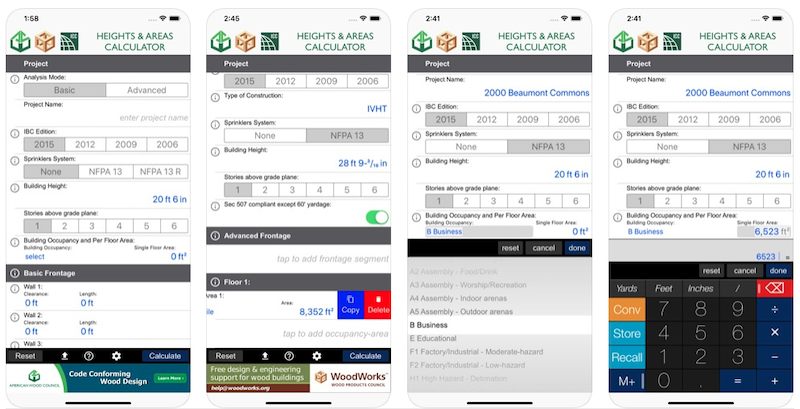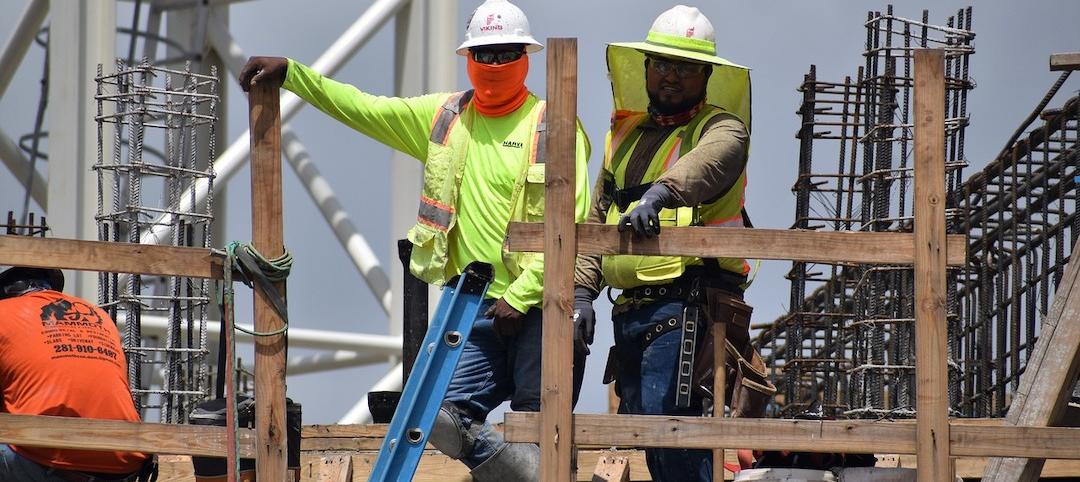A free app that calculates the maximum allowable heights and areas for buildings of various occupancy classifications and types of construction has been released.
The Heights & Areas Calculator, developed by the International Code Council, the American Wood Council, and WoodWorks, is based on provisions in the 2006 to 2015 editions of the International Building Code.
Users can input a given building geometry, site conditions (e.g., open frontage), type of construction, and occupancy.
The tool then shows allowable types of construction that are permitted. The “basic” version of the calculator limits building input to a single occupancy and equal floor areas for the entire building. An “advanced” option permits multiple occupancies and different floor areas.
“We often work with design teams that are exploring wood construction as a way to cost-effectively increase the density of their projects,” said Bill Parsons, vice president of operations for WoodWorks, in a news release. “The new heights and areas app lets building designers quickly determine if they’re maximizing value based on the objectives of the project, and to compare the options available with different construction types.”
Related Stories
Codes and Standards | Jan 19, 2022
Canada’s Trudeau seeking building codes changes, net-zero emissions building strategy
Prime minister also wants net-zero electricity grid by 2035.
Codes and Standards | Jan 18, 2022
Greater emphasis on building materials needed to achieve net-zero carbon offices
Engineered wood, straw, and bamboo can be keys to achieving goal.
Codes and Standards | Jan 17, 2022
AISC seeks comments on draft earthquake standard for steel buildings
Includes new limits for cross-sectional slenderness of steel columns based on latest research.
Codes and Standards | Jan 12, 2022
California’s wildfire building code significantly reduces structural loss
As other states consider upgrading their codes, Golden State provides useful model.
Codes and Standards | Jan 12, 2022
Regulator holding back climate-friendly, energy-saving equipment deployment, critics say
Heat pumps, solar power could be made more accessible for low-income communities in Massachusetts.
Codes and Standards | Jan 11, 2022
Cost hikes drive nearly one million renters out of homeownership qualification in 2021
Household income needed to pay a mortgage rose to $62,872 from $55,186.
Codes and Standards | Jan 10, 2022
New ratings services focus on climate risk for homeowners
Efficacy of models used in risk assessment varies.
Codes and Standards | Jan 6, 2022
Virginia contractors having a tough time finding diverse subs to meet state goals
Survey of primes may indicate similar issues at federal level.
Codes and Standards | Jan 5, 2022
Boston drops parking requirements for affordable housing
Measure expected to spur new projects.
Codes and Standards | Jan 4, 2022
Dept. of Energy Better Climate Challenge aims for 50% GHG emission reduction by 2030
Program offers technical assistance and peer-to-peer knowledge sharing.

















